Product Spotlight • Abstract & Geometric Wall Art
Smart Statement, Calm Focus: Neuroscience Wall Art for Modern Clinics & Homes
Featuring Abstract Brain Art – Neuroscience Wall Decor (Gold & Blue): a blue-gold abstract brain canvas designed for psychology practices, therapy rooms, medical offices, and design-forward homes. Archival pigments, cotton canvas, and optional floating frame make it a dialed-in choice for medical office wall decor, waiting rooms, and study spaces.
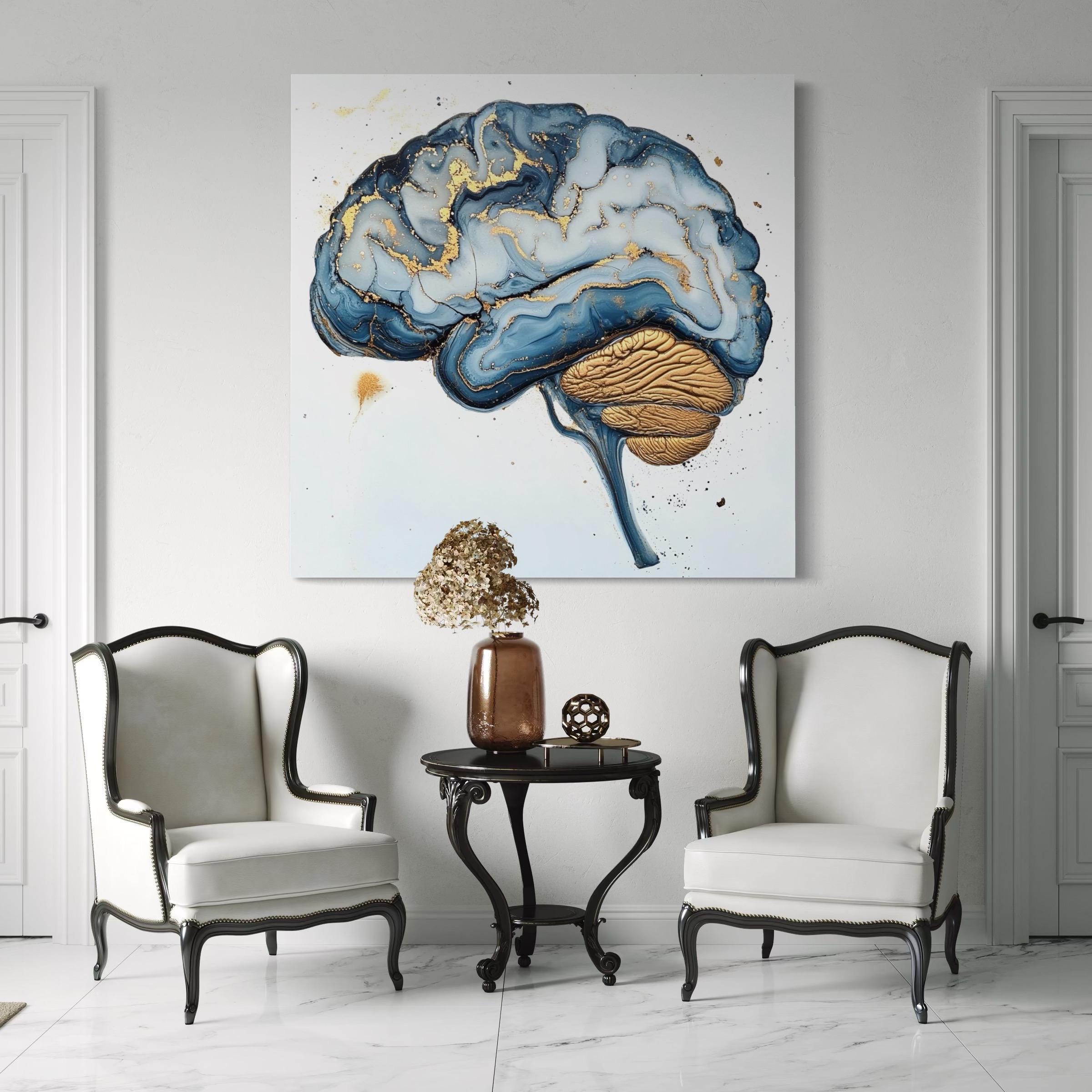
1) The Brain Meets the Gallery Wall
A conversation piece that earns its keep, this neuroscience wall art turns the brain’s elegant structure into a clean, contemporary motif. The restrained Prussian-blue to deep-navy field steadies the gaze, while luminous gold linework supplies a little celebratory spark—ideal for clinics, therapy office wall decor, university departments, and modern homes.
“Statement-smart art: calm enough for clinical spaces, striking enough for living rooms.”
2) Why This Piece Works (Design + Craft)
Printed to order with archival pigment inks on cotton canvas, the artwork delivers crisp linework and rich, even color. Choose gallery-wrapped canvas (ready to hang) or a floating frame canvas art option that adds a thin shadow-gap for premium edge definition. Posters are available for flexible framing workflows.
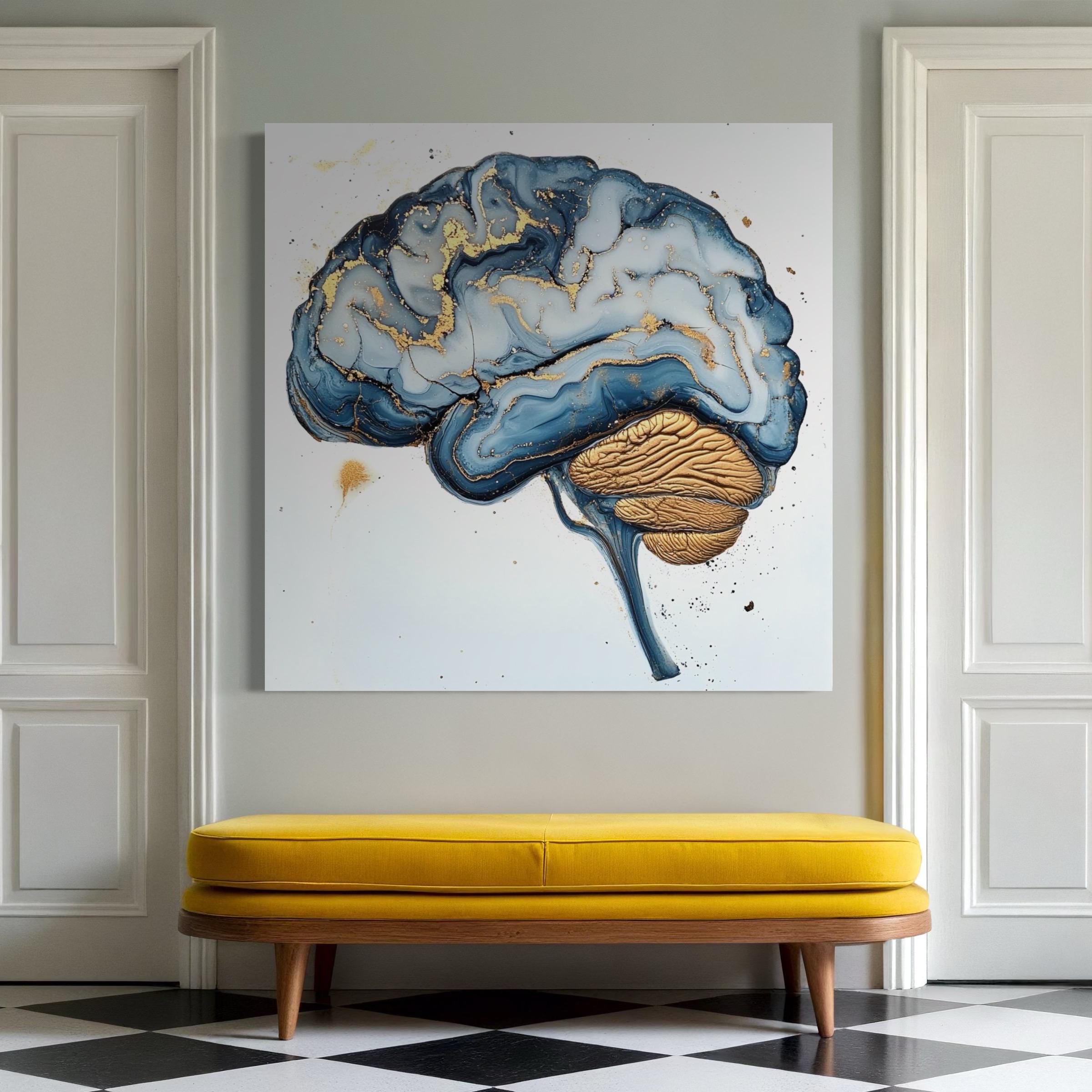
Hardware is included for a straightforward install. Profiles are a sturdy ~1.5″ for stretched canvas; floating frames come in versatile finishes (oak, black, white, etc.) to harmonize with medical cabinetry and office furniture.
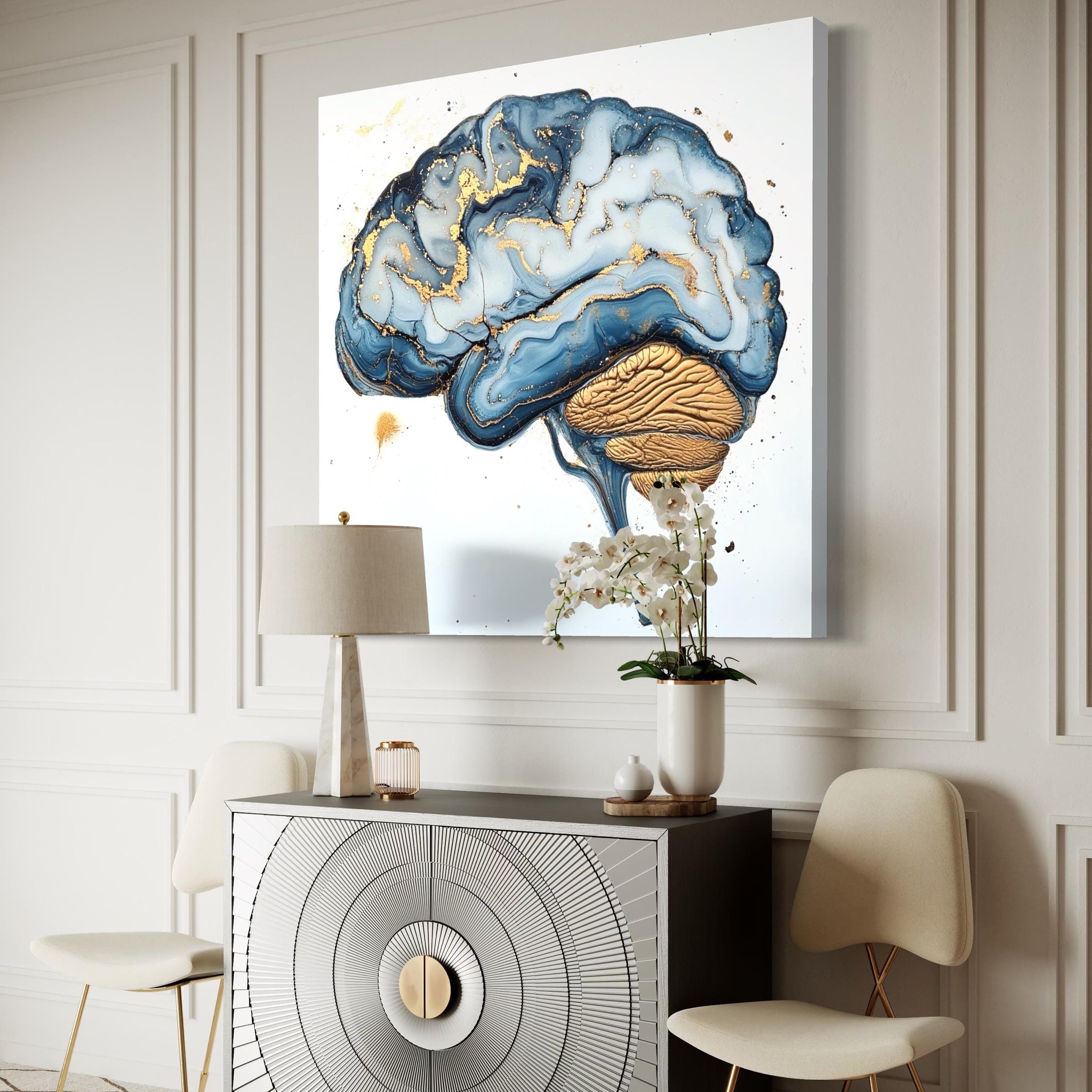
3) Color Story: Blue × Gold = Calm Focus + Spark
Cool blues are widely used to cultivate focus and a low-glare visual field; gold accents add warmth and a trace of energy—great for reception areas where you want welcoming clarity, not sensory overload. Pair with oak or black frames, a charcoal rug, and plant greens for a confident, professional palette.
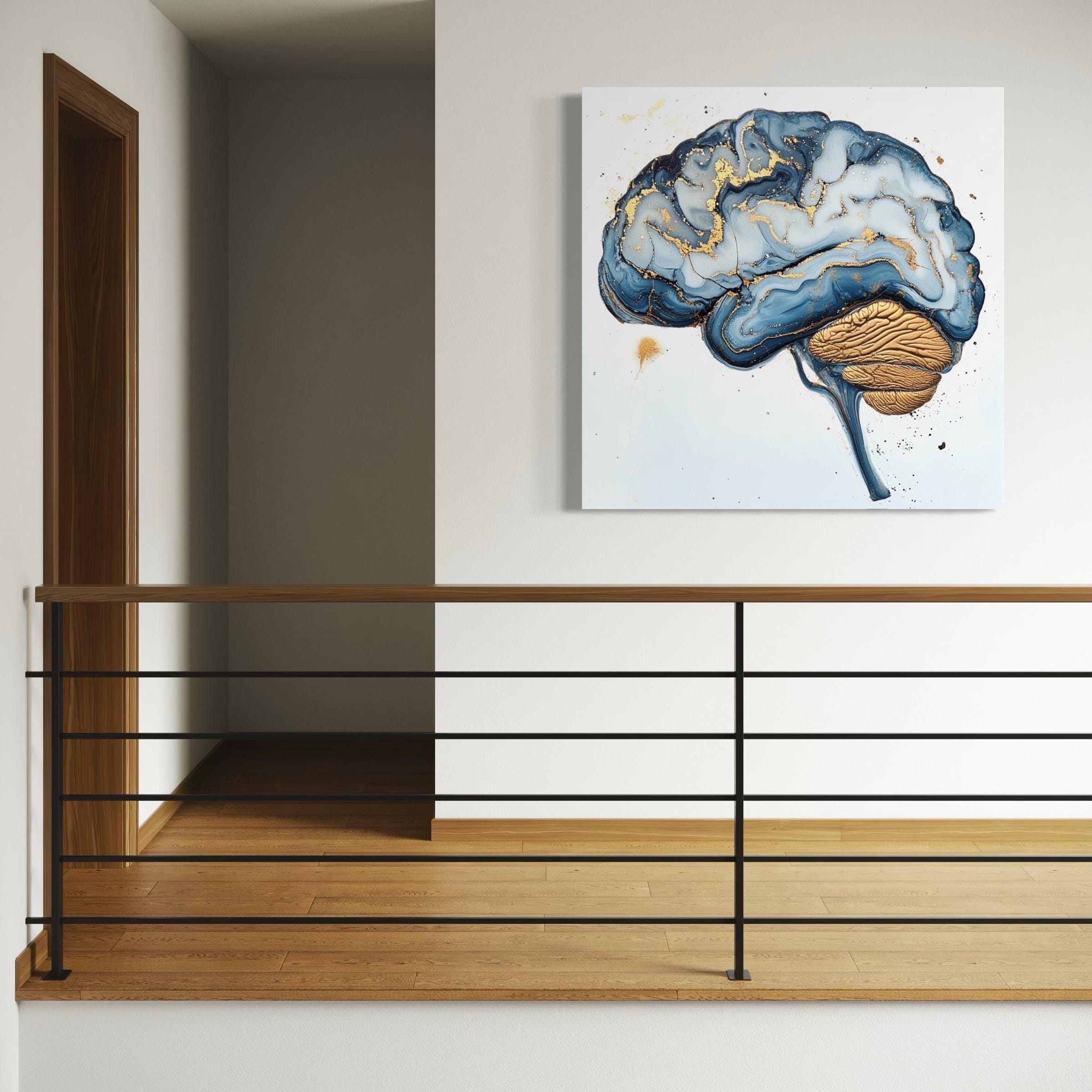
4) Neuroaesthetics 101 (Why Art Changes How We Feel)
Put simply: engaging with art is a brain event. Visual structure, rhythm, and contrast invite attention and reward, which is why well-chosen artwork can help clinical spaces feel less sterile and more human. That’s the core of neuroaesthetics—how aesthetic experiences shape attention, mood, and meaning in everyday environments.
“In healthcare and learning spaces, art isn’t an extra—it’s an evidence-aware design tool.”
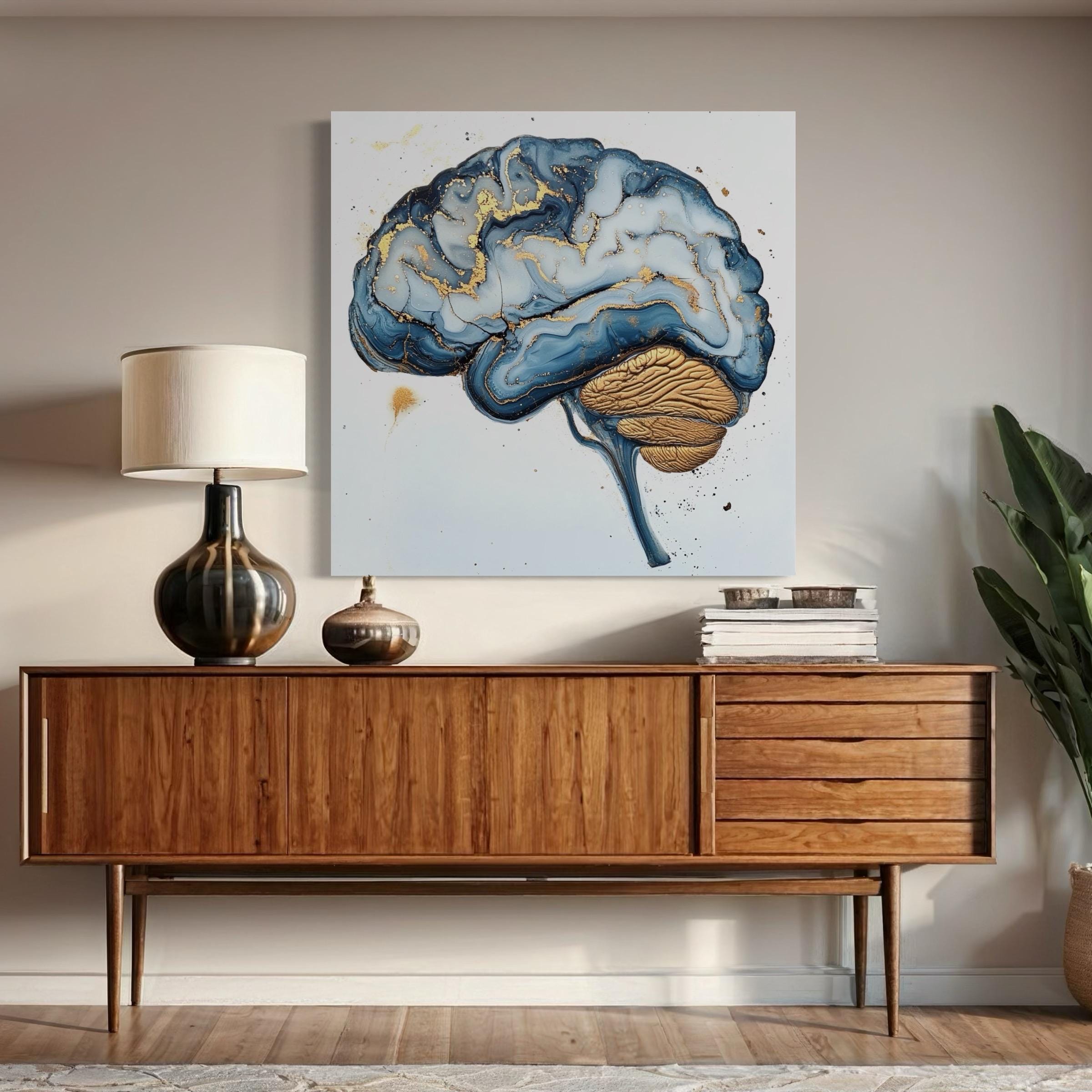
5) Where to Hang It: Real-World Use Cases
This brain anatomy art slots naturally into neurology and psychology offices, therapy rooms, clinic waiting areas, university departments, and home studies. It reads professional and thoughtful without looking clinical.
Hanging Heights (Quick Guide)
- Center at ~145–155 cm from floor for seated viewing (waiting rooms).
- Leave 10–18 cm above furniture edges (sofa, console, bench).
- Groupings: keep 4–6 cm between frames for a clean grid.
Frame picks: oak for warmth; black for crisp contrast; white for minimal walls.
6) For Healthcare Spaces: Design Talking Points
Thoughtfully curated art programs are widely used to help reduce perceived stress and improve experience quality in clinics and hospitals. For administrators, that means: calmer reception zones, more welcoming corridors, and better wayfinding anchors. Keep content positive, legible from a distance, and aligned with the facility’s palette.
- Prioritize low-glare finishes in strong overhead lighting.
- Use cohesive color families across waiting, consult, and staff areas.
- Mix scales: one feature piece + supporting smaller works.
7) Mix & Match: 5 Coordinating Pieces (Cohesive Wall Plan)
Build a “science-meets-art” wall with these visually compatible picks. Each pairs on color, line rhythm, or subject to complement the blue-gold brain motif.
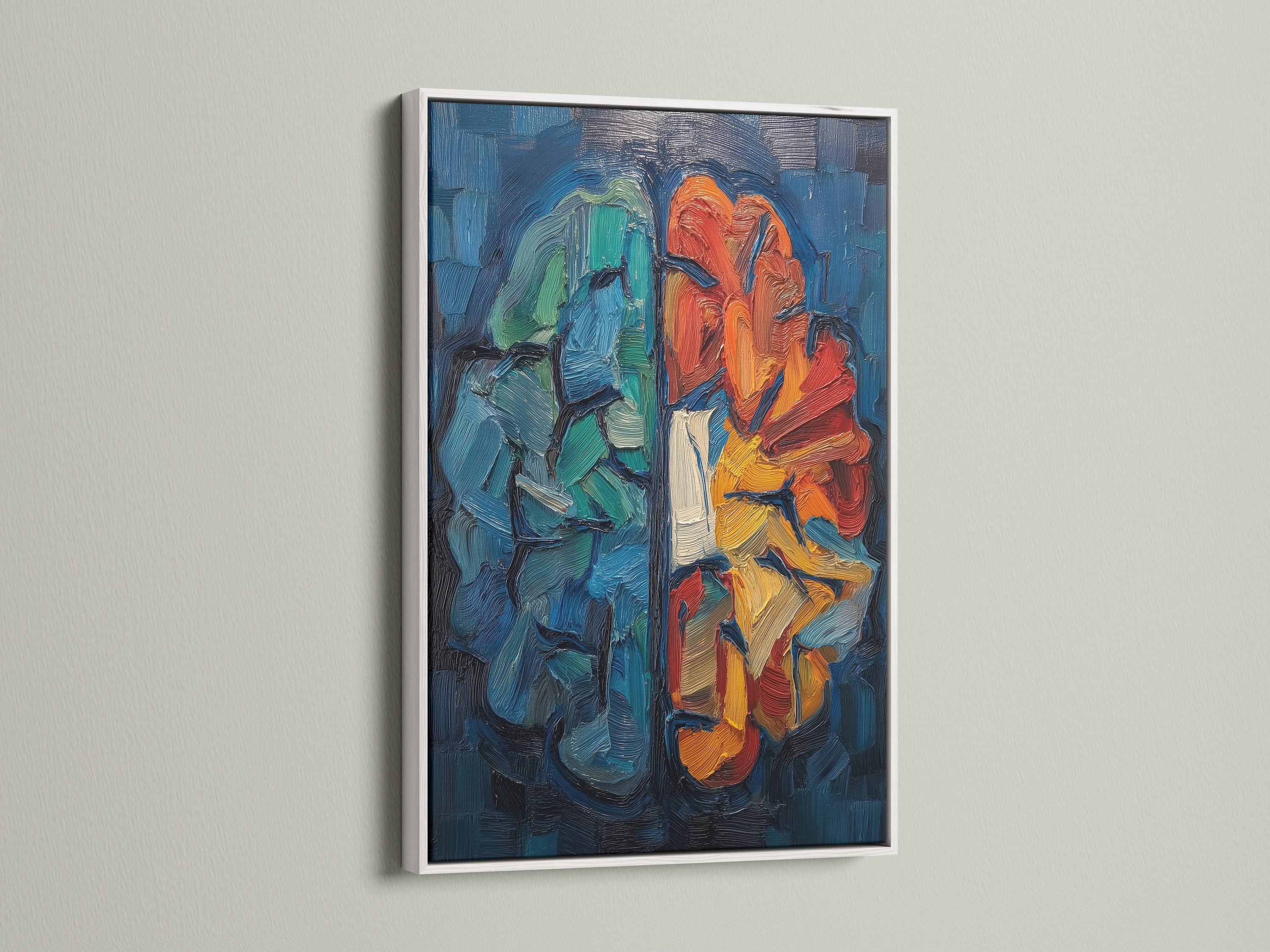
Teal–Orange Brain — a warmer counterpoint that keeps the neural linework front and center.
View product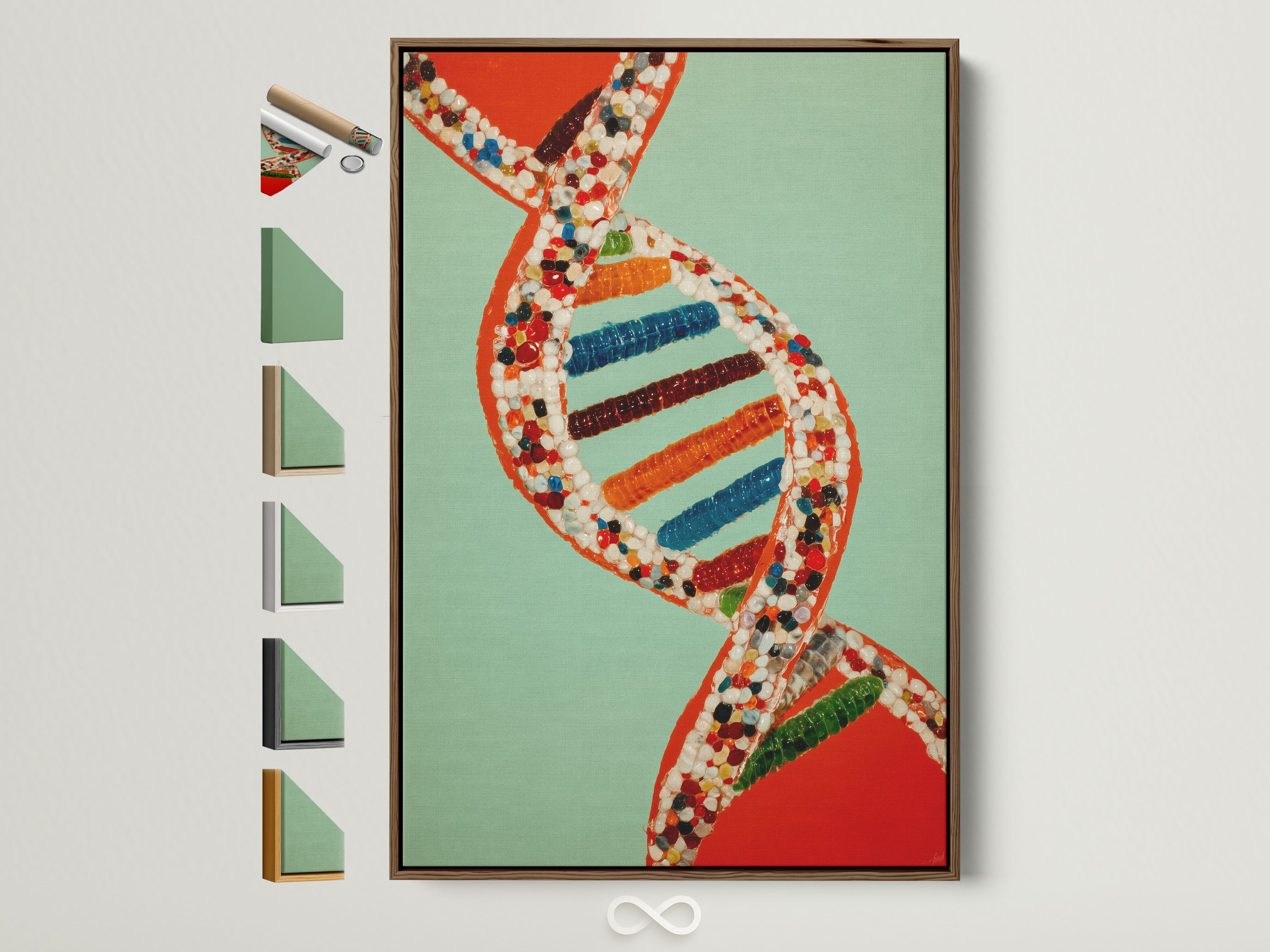
Mint & Coral DNA — pairs the brain’s macro-view with a cheerful molecular motif for reception areas.
View product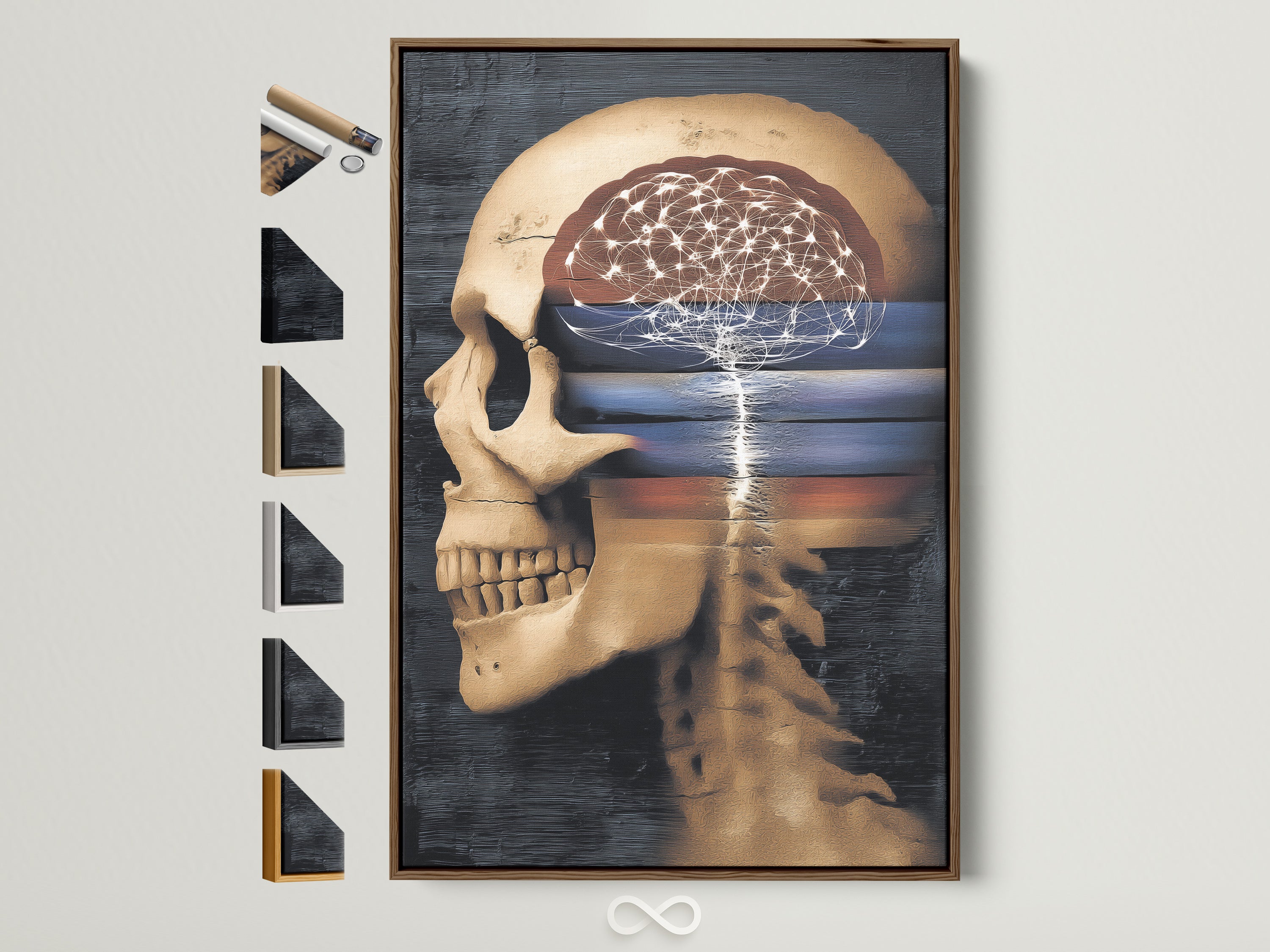
Anatomical Skull (Brain Study) — a classic academic note to balance the abstracted main piece.
View product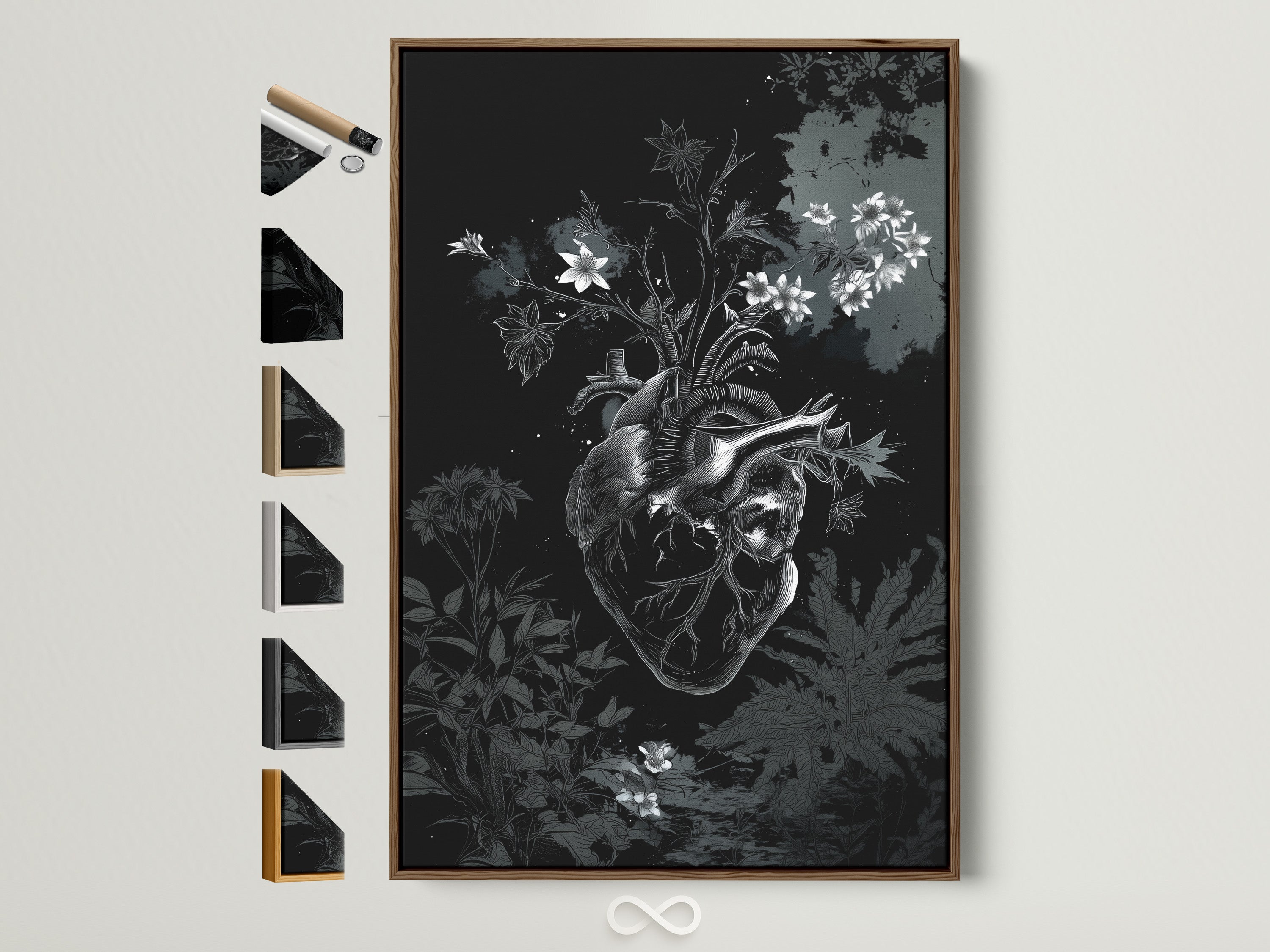
Botanical Heart — organic florals soften the analytic vibe without losing the anatomy theme.
View product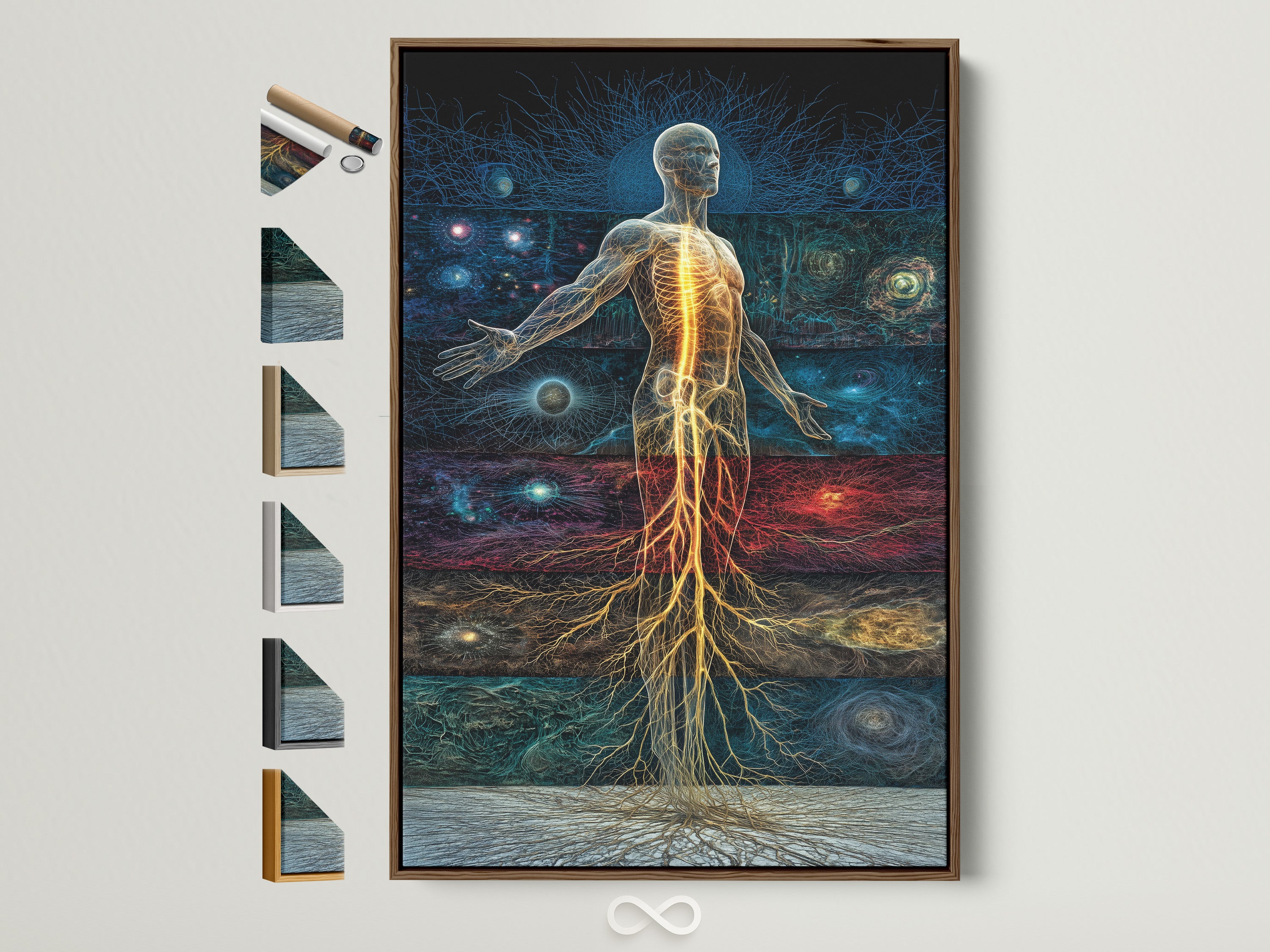
Human Body Energy Field — a vertical figure study that adds scale contrast and quiet symmetry.
View product8) Size & Format Guide (Poster, Canvas, Floating Frame)
Poster Print: flexible, lightweight, great for DIY frames and rotating displays in clinics and classrooms.
Gallery-Wrapped Canvas: textured surface, sturdy ~1.5″ profile, arrives ready to hang.
Floating-Frame Canvas: slim shadow gap and clean profile for premium, professional settings.
Measure Your Wall
- Single feature: target 60–70% of furniture width (sofa, console).
- Pairs/Triptychs: keep 4–6 cm between pieces.
- Eye line: ~150 cm center for mixed standing/seated spaces.
Popular Groupings
- Large Single (90–120 cm wide) over benches and sofas.
- Two-Across (50–70 cm each) for corridors and study nooks.
- Triptych (3× 40–60 cm) for wide walls and teaching spaces.
9) Styling Recipes: 3 Quick Room Mockups (Words-Only)
Psychology Office Calm: muted gray-green wall, oak floating frame, low-glare lamping. Add a small fern and matte black desk accessories.
Clinic Waiting Room Bright: off-white wall, black frame for crisp contrast; pair with the Mint & Coral DNA print for a friendly color spark.
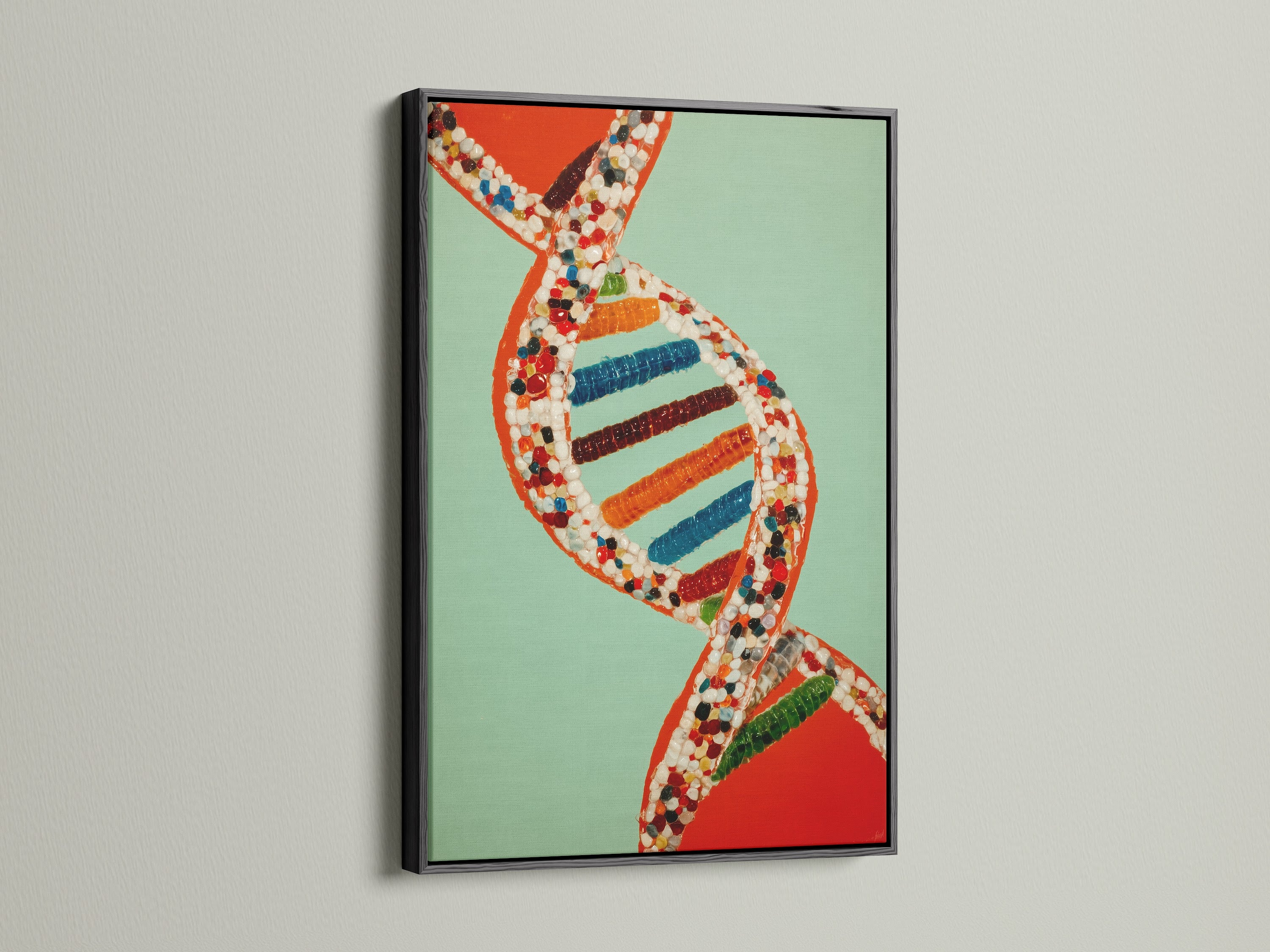
Home Study Modern: muted blue wall, gold frame, brass desk lamp; keep desktop tidy with one sculptural object for balance.
10) Gifting Angle: Smart Presents for Smart People
A memorable gift for neurologists, med students, therapists, professors, or anyone who loves science-forward design. Add a note card, choose a frame finish that matches their workspace, and ship directly to the recipient—easy.
Buy brain canvas art11) FAQ & Care
What materials are used?
Is it ready to hang?
What about sizing?
Care instructions
Explore more in Abstract & Geometric Wall Art.
Gallery (Blue & Gold Brain)






